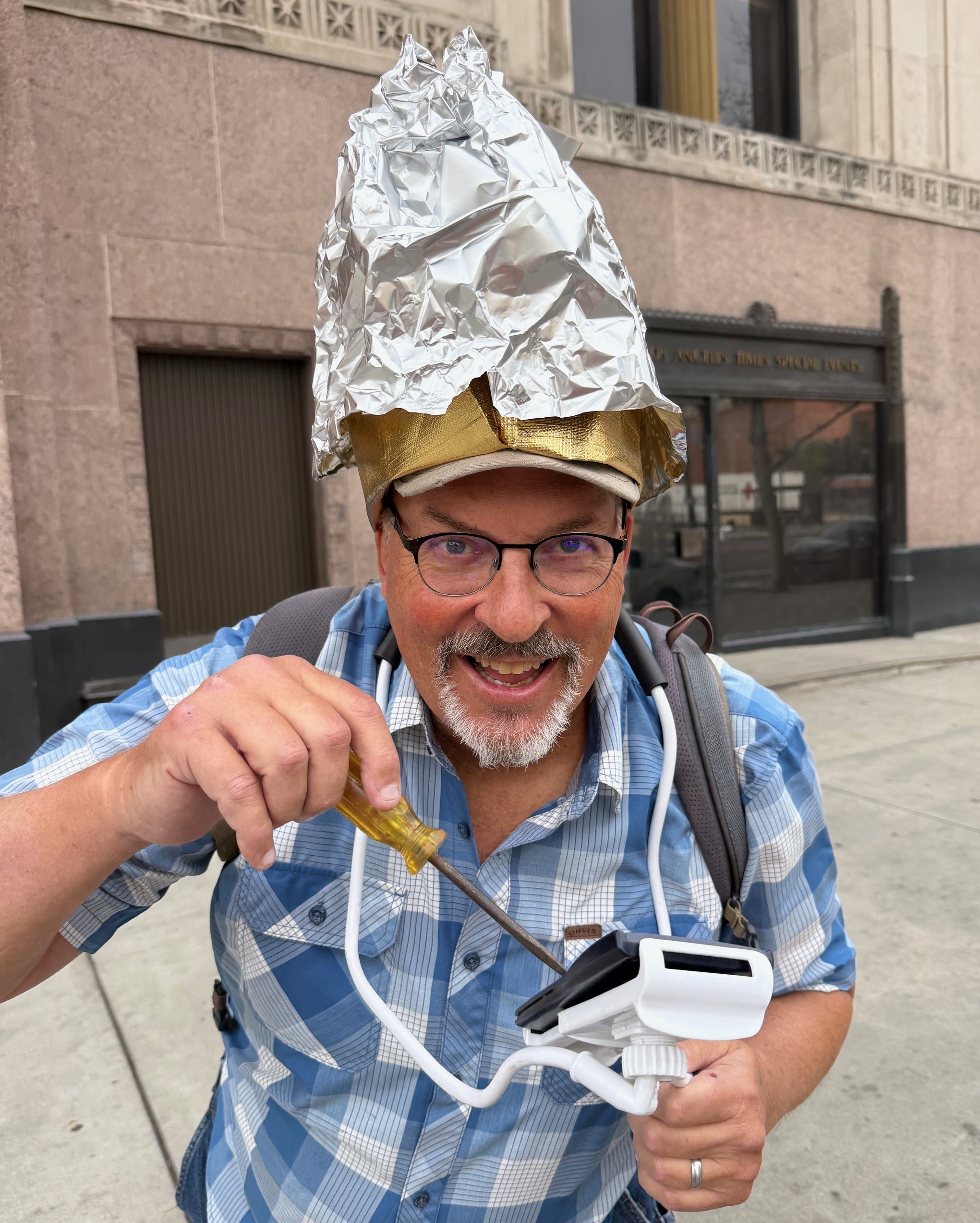 Image: New York Times.
Image: New York Times.I've railed on General Motors and Segway in the past for the myriad impracticalities of their tandem Personal Urban Mobility and Accessibility (P.U.M.A.) prototype. Now they're at it again, making headlines today
by unveiling the first three models in their new Electric Networked
Vehicle (EN-V, pronounced "envy") line, including the Jiao, which is
Chinese for "Pride."
Someone please tell their marketing
department to come up
with a new name for the next iteration of this concept vehicle.
Seriously, pinning the hopes for resuscitating the image of your
flailing car company on the deadly sins?
If I may, here's a suggestion for the hybrid-electric Suburban you may
or may not be considering in the future: The Chevy "Glut-ton-E."
The
product launch comes complete with dubious claims about the vehicles.
They don't pollute! They're small enough to get through traffic!
But
until we get electricity production to be non-polluting, these vehicles
will effectively still have tailpipes, albeit much further from your
city, where you don't have to worry so much about those unregulated coal ash sumps giving someone else cancer. And how exactly will they bypass traffic -- bike lanes?
Snide
commentary aside, I think GM is missing a link in the evolution of
mobility. How do these things fill a need? They take all the
convenience of cars, reduce carrying capacity, and limit the maximum
speed to 25 mph. Of course, I'm not arguing that slower speeds in
cities are bad, I just don't understand who's supposed to be the target
market. Someone help me out. Do these products have a practical
function?
And I'll come back to my own bias and state the obvious: Cities already have personal urban mobility devices that don't pollute.






